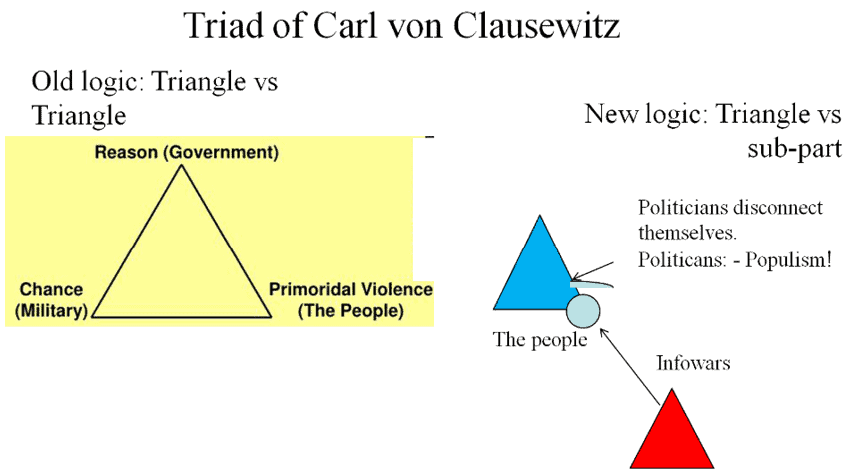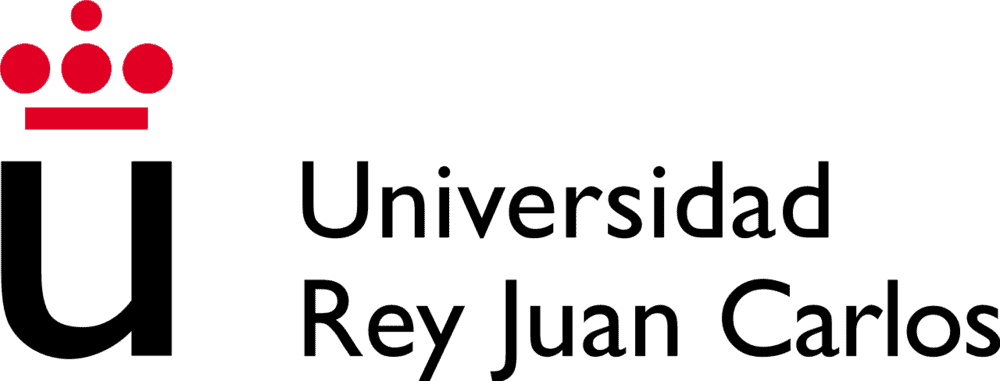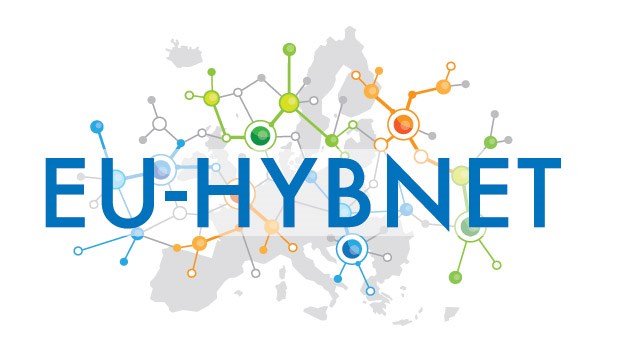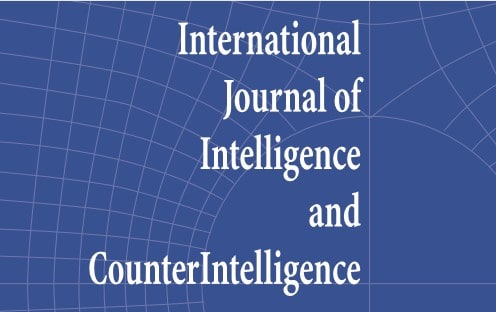Responding to Hybrid Threats in the Mediterranean and Black Sea Region
Comprehensive approach with local authorities and civil society
14 to 16 December 2021
13:00 to 16:00 CET
Presentation
The purpose of the workshop is to contribute to the development of resilience against hybrid threats at a regional level within the member states and among its influencers and opinion formers. Hybrid threats erode the political cohesion of the alliance and its partners and are a part of the current EU, NATO, and the partner’s security landscape.
The primary objective is to examine a synchronization toolkit on resilience mechanisms between the EU, NATO, and regional authorities and to evaluate the effectiveness of the policy process from a central level down to regional levels among the target audience and to give guidelines in how to improve the process. Other objectives, following the pilot study, include the following:
What we find today is that a state can reach the parts of another state’s triangle of war fighting capability much easier. It is simplified to say that it is about the Internet, but it is also true that the Internet facilitates a host of opportunities, good and bad when it comes to communicating with a population. Meddling in internal affairs disrupt the Western narrative of globalization, rule of law, democracy, and interconnectivity. Hybrid warfare as part of a wider information operation provides a problem partly by its content; partly by its due to attribution questions and the potential for deniability by the perpetrator.
Best practices analysis will fill knowledge gaps in addressing hybrid threats. The development of a resilience toolkit applicable at a regional level will lead towards a change of attitude vis-à-vis hybrid threats and to an improved EU-NATO- regional authorities synchronized effort in countering hybrid threats.
Picture from: Håkan Gunneriusson “Hybrid warfare: Development, historical context, challenges and interpretations”, ICONO14 vol19 #1, 2021:1
Open event – Program
14th of December
Several international keynote speakers linked with some main European organizations and the countries of reference of the workshop will take part.
13:00 – 13:15 > Presentation and Opening Remarks
13: 15 – 13:30 > The challenge of hybrid threats in the western Mediterranean
Graduated in Law and entered the Diplomatic Career in 1988. He has been the secretary at the Embassy of Spain in Ireland and deputy general director of Community Coordination for Technical Affairs, and for Customs and Commercial Affairs of the European Union. He was an advisory member in the Cabinet of the Prime Minister, and in 2004 he was assigned to the Rapid Alert Political Unit of the General Secretariat of the Council of the European Union. In February 2012 he was appointed Representative Ambassador of Spain in the Political and Security Committee of the Council of the European Union.
13: 30 – 14:00 > NATO perspective
Ino-Despina Afentouli is the Program Manager for Partnerships, Cooperative Security and Open Door policies and Program Officer for Greece at NATO’s Public Diplomacy Division (Engagements Team). She is responsible for the elaboration and implementation of the Public Diplomacy Strategy related to NATO’s partnerships, she represents Public Diplomacy Division in the respective NATO Committees and official meetings with the countries under her responsibility and she has the overall management of the communication campaigns in cooperation with state authorities and/or NGOs.
14:00: 14:15 >Break
14:15 – 15:15 > Panel with representatives from Greece, Romania and Spain
Athanasios Kosmopoulos attended the Corps Officers Academy (SSAS), from whom he graduated as a military lawyer with the rank of second lieutenant. During his parallel studies at the Law School of the Aristotle University of Thessaloniki, he specialized in International Law. He holds an LL.M in European Law and Politics from the Uninettuno University in Rome. In 2000 he resigned at his request with the rank of Major and was recruited by the Department of Organization and Management of European Funds of the Ministry of Development, as a legal adviser.
He served as Governor and Chairman of the BoD at the largest hospital in the Balkans. Since 2010 he has been the Head of Organization and Support of the Executive Agency of Information Technologies of the Ministry of Development. In May 2018 he was appointed as Data Protection Officer (DPO) of the Ministry of Digital Governance. He is ISO certified DPO. Visiting lecturer at the Hellenic National Defense College, the Hellenic National Security Academy, National Intelligence Service and other institutions in Greece and abroad. He is appointed as Greece’s National Representative at the European Cybersecurity Competence Center and is formerly elected Vice President of the Hellenic MENSA. His research interests concern hybrid threats, geopolitics and legal issues of privacy, data protection and disinformation.
Irena Chiru is a professor of intelligence studies and strategic communication at the National Academy of Information “Mihai Viteazul” and dean of the Faculty of Intelligence Studies at the same university. She also teaches as an associate professor at the Romanian-American University and University of Bucharest. Since 2019, she has served as president of the International Association for Intelligence Education – European Chapter. In the last 20 years, he has taught over 200 scientific seminars and colloquia and delivered more than 30 educational lectures on strategic communication and its impact on intelligence organizations.
CF David Díaz-Caneja Greciano entered the Naval Military School in 1993. In 1998, he received his office as Ensign of the Ship and was assigned to the Aircraft Carrier “Príncipe de Asturias”.
From 1999 to 2001 he took the helicopter AVP course in the US with the US Navy and was assigned to the 10th Squadron of the Aircraft Flotilla where he stayed until 2007, with an intermediate period in which he specialized in TCI. During this time he participated in various deployments aboard the F-80 and F-100 frigates. In 2007 he was assigned as a keel crew to the LHD “Juan Carlos I”. He has occupied various destinations afloat as a crew, highlighting the Chief of Control of the ship of the frigate «Méndez Núñez» from 2010 to 2012 and 2nd Commander of the «Hespérides» from 2012 to 2013. He has also been Chief of Operations of Group 1 in 2013, From 2015 to 2016, he took the General Staff Course at the Defense Academy of the United Kingdom and was assigned to the General Staff of the Navy to the Plans Division in the section on Defining Capabilities. Later he was Chief of Orders of the 31 Squadron. Upon promotion to CF he was assigned to the NATO Maritime Headquarters in Northwood (UK) (MARCOM).
He has been Commander on two occasions, of the Patrolman «Brig» in the TN employment and the High-altitude Patrolman «Serviola» during the employment of CC.
He has participated in several international missions, both NATO and EU, among which are: «Active Endeavor», «Iraq», «Enduring Freedom», «Unified Protector Libya», «Antarctic Campaign» and «Sea Guardian».
He has recognized the professional level in English and Portuguese.
Since August 2021, he has been assigned to the Navy General Staff, strategic plans section, in charge of NATO-related matters.
15:15 – 16:00 > Building a Pan-European network to counter hybrid threats
Päivi Mattila, PhD, holds a position of Director of Security Research Program at Laurea University of Applied Sciences (Finland), and she is responsible for quality and growth and strategic goals of Laurea security RDI activities. Dr. Mattila is the coordinator of the EC funded EU-HYBNET (Empowering a pan-European Network to Counter Hybrid Threats, GA No. 883054) project. She is a Doctor of Philosophy (general history). Formerly she has worked as the head of the Project and Development Unit at the Crisis Management Centre Finland (CMC Finland) and for the Embassy of Finland in Tel Aviv and in the Finnish Institute in the Middle East alike in the Ministry for Foreign Affairs in Finland.
Georgios Kokkinis (MSc, CEng) is a senior researcher – project manager, with more than 20 years of experience in the security field and in the telecoms industry. In his current assignment, at the Centre for Security Studies (KEMEA), of the Hellenic Ministry of Citizen Protection, George is coordinating MEDEA a H2020 research project and at the same time he participates in several securities (both physical and Cyber) research activities as Work Package and Task Leader. George is interested in the analysis of end user requirements, the formulation of capability gaps and policy recommendations stemming from lessons learned from security research, and the evaluation of research developments. Prior to his current position, George worked for Fortune-500 companies in international projects in Greece, the Balkans and in Israel.
16:00 > End of the first day of the event
15th of December
13:00 > Hybrid threats conceptual framework
Director of Research and Analysis at the Center of Excellence to Counter Threats Hybrids and visiting professor for the academic year 2020-2021 at the College of Europe, Bruges. Dr. Smith is an expert on hybrid threats, Russia and Eurasia and the great power identity, with research interests including security, relationship and institutional studies international as well as regional and Nordic cooperation. Her latest publication is Strategic Culture in Russian Neighborhood (Lexington 2019) with Katalin Miklossy (eds). She has published numerous articles in books, academic journals, and newspapers, and has taught courses at the University of Helsinki and the University of Eastern Finland. She comments on hybrid threats, Russia and international affairs both in the media Finns and internationals.
Close workshop
15th and 16th december (only by invitation)
Closed event
Invited contributors and participants: local authorities and civil society with some focus on Greece, Spain and Romania
TTX on Hybrid Threats
Based on a pre-designed scenario
Involving 4 groups
- G1: Local authorities and civil society
- G2: Infrastructure
- G3: Maritime security
- G4: International cooperation
Participants
G1: Local authorities and civil society
Facilitated by Rubén Arcos
Reporting by Andrés de Castro
- Antonio Manuel Díaz Fernández
- Rodrigo Gaona
- Cristina Arribas
- Hanna Rothelius
- Stavros Apostolakis
- Eero Kytomaa
- Ioana Vancea
- Mihaela Teodor
- Adam Lelonek
- Isto Mattila
G2: Infrastructure and G3 Maritime security
Facilitated by Håkan Gunneriusson
Reporting by Bill Kappis
- Juan B Paya
- Elena Novavescu
- Valentin Stoian
- Aleksandar Nacev
- Athanasios KOSMOPOULOS
- BRUNILDA ÇOTI
- Fabio Indeo
- Gordan Akrap
- Yiannis Koukouras
- Marta Kepe
- Freideriki Makri
- Giorgos Triantafyllou
- Marc Ozawa
G4: International cooperation
Facilitated by Vira Ratsiborynska
Reporting by Kamil Mikuslki
- Agnes Venema
- Anneli Ahonen
- John Nomikos
- Michel Wyss
- Mihaela Natea
- Thierry Segers
- Yantsislav Yanakiev
- Markus Peltola
- Thomas Basioukas
- Jose Santos
- Patricia Romeyro
Hybrid Threats

In deep
The workshop will include a set of resilience guidelines and recommendations to the regional authorities that will be based on a series of comprehensive approaches established by the EU and NATO on hybrid threats and resilience. Particular attention will be devoted to the questions of the methodology on resilience against hybrid threats as well as to the diplomatic, informational, military, economic and financial, intelligence and legal dimensions.
Furthermore, questions of complementarity, synchronization of efforts in countering hybrid threats and reciprocity will be explored and analyzed.
Responding to grey areas in the Black Sea” the workshop will address learning gaps in dealing with hybrid threats and will highlight knowledge gaps that must be filled in. The course will establish a best-case toolkit that will promote good governance at a regional and local level, focusing on specificities of the Black Sea region and on the EU and NATO synchronized efforts in dealing with hybrid threats in the region. The workshop will lead to a better understanding of how hybrid threats impact good governance and what is the best approach of regional authorities to deal with hybrid threats.

Workshop Committee
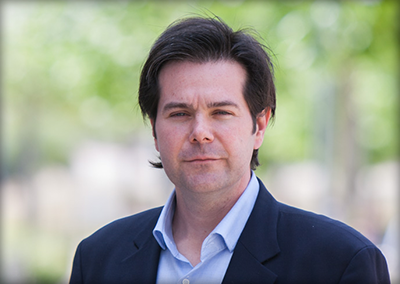
Rubén Arcos
University Rey Juan Carlos
Dr. Rubén Arcos is a senior lecturer in communication sciences at University Rey Juan Carlos (URJC) in Madrid. He is Program Co-Chair of the Intelligence Studies Section at the International Studies Association (ISA). He is a co-founder and co-director of IntelHub – International Online Intelligence Hub, an international network for the study of intelligence developed in collaboration between the American Public University System (APUS), the University of Leicester in the UK, and URJC.
Arcos is a member of the expert pool on the information of the European Centre of Excellence for Countering Hybrid Threats. Arcos is currently a researcher (information and strategic communication core theme leader) in the EU-HYBNET project – Empowering a Pan-European Network to Counter Hybrid Threats (a five-year-long project funded by the European Commission’s Horizon 2020 Programme) and a member of the research group Ciberimaginario.
His latest books are ‘The Art of Intelligence: More Simulations, Exercises, and Games’ (Rowman & Littlefield Security and Professional Intelligence Education Series, 2019; edited with W. J. Lahneman), and ‘Intelligence Communication in the Digital Era: transforming security, defence and business’ (Palgrave MacMillan, 2015; edited with R. H. Pherson).

Vira Ratsiborynska
Vrije Universiteit Brussels
Dr. Vira Ratsiborynska is an Adjunct Professor on NATO and transatlantic approaches to security and Global politics at the Vrije Universiteit Brussel (VUB). Her research interests include the relations between the EU, NATO, the Eastern partners, Russia, and Central Asia, e.g. in energy, trade, geopolitics, border security, conflict management, and peacekeeping.
Vira Ratsiborynska holds a Ph.D. from the University of Strasbourg, France. She wrote her dissertation on the European Neighbourhood Policy (with regard to the East) and publishes extensively in English and French on the topics of the European Union and the Eastern flank’s security, the relations with the Eastern Partnership countries, NATO and Russia. She obtained a Master’s degree in EU Studies from the College of Europe (Belgium) and a Master in Political and Social Studies from Sciences Po (France).
Her professional experience includes working in support of such organizations as the European institutions and NATO entities.

Håkan Gunneriusson
Mid Sweden University
2002 I took my PhD in History, Uppsala. In 2005 I applied to be a research fellow at The Swedish Defence University (SEDU) and was chosen for one of the two positions (19 people applied). After 2 years at this position I was promoted, in competition with others, to the job of assistant professor at SEDU.
In the last years I have been a visiting research fellow at the Centre of Conflict, Rule of Law and Society, Bournemouth University, a co-operation which has benefited both parts. I have also been engaged in a range of different NATO contexts due to my work at SEDU: “Counter Hybrid Threat Experiment”, 2011 in Tallinn; The Exploratory Team MSG-ET-043 on Hybrid Warfare Modelling and Simulation, 2016 in Rome; The Workshop for the Strategic Military Partners Conference (SMPC), Izmir 2016. Expert and founding member of the group Regional (Black Sea and Med) expert group for Countering Hybrid threats at the meeting: “Countering Hybrid Threats in the Mediterranean and Black Sea Regions” NATO Maritime Interdiction Operations Centre (NMIOTC), Chania, Greece, 17-19 September 2019. I have also contributed to NATO’s Legal Advisor Web with my publications being used as NATO reference documents (LAWFAS) by SHAPE and as scientific contributor. The Autumn 2018 I was invited as researcher at NATO Defense College, Rome. I also became a Docent in War Studies then. All of these contributed to my publications these past years, a range of articles and a book within the discipline of war studies.
I have the last 3 years been associate professor in political science, Mid-Sweden University. I am Affiliate faculty member at the Institute for Governance & Policy Analysis, University of Canberra.

Chris Kremidas-Courtney
Friends of Europe
Chris Kremidas-Courtney is a senior fellow for peace, security, and defence. lecturer for the Institute for Security Governance in Monterey, California, lecturer for the Geneva Center for Security Policy, and adjunct faculty for the Stratcom hybrid program at Unversidad Rey Juan Carlos in Madrid. He served for 32 years in various US and multilateral positions, serving as the Multilateral Engagement Coordinator for US European Command, director of training and exercises for the Hybrid COE, and political advisor for NATO Training Mission – Iraq. In recent years, he designed and ran high level EU-NATO hybrid and disinformation exercises and now lead the Friends of Europe tabletop exercise program, which features an annual EU-NATO-private sector hybrid resilience exercise.
A natural international community builder, Chris organises the comprehensive approach seminars for the NATO headquarters and has built regional communities of interest to address hybrid threats and resilience in the Black Sea and Mediterranean, counter disinformation in Europe, and to reduce violence in the Mexican city of Juarez. He also serves member of the American Security Project, the Euro-Mediterranean Security Observatory, and on the advisory board for Unconventional International.

Manuel Gertrudix
University Rey Juan Carlos
Associate Professor of Digital Communication at the Rey Juan Carlos University, coordinator of the Cyberimaginary research group, and co-editor of the scientific journal Icono14. Specialist in digital communication he has been IP of 8 competitive national and international research projects. He has been Vice Chancellor for Quality, Ethics and Good Governance of the URJC (2018 -2021), Academic Director of the Center for Innovation in Digital Education (2013-2017), Technical Advisor of New Technologies (2003-2007) and Head of Service of distance education of the Ministry of Education (Spain).
Extended Committee
- Päivi Mattila
- Georgios Kokkinis
- Kamil Mikulski
- María Victoria Campos Zabala
- Andrés de Castro
- Cristina Arribas Mato

